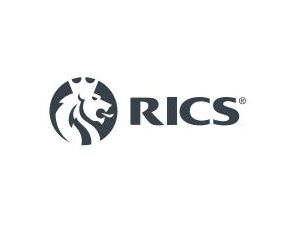 The UK housing market showed further signs of a slowing last month as fast-rising inflation and higher interest rates tightened the financial squeeze for many households.
The UK housing market showed further signs of a slowing last month as fast-rising inflation and higher interest rates tightened the financial squeeze for many households.
The latest survey from the Royal Institution of Chartered Surveyors shows that its new buyers gauge fell to -7 from +8 in April, the first time it turned negative in nine months.
The cost-of-living crisis is clearly taking its toll, while speculation that interest rates will increase next week for a fifth time since December is likely to slow buyer demand even further.
RICS said expectations for residential property sales over the next three and 12 months deteriorated after showing little change in May.
Growth in property prices has long been supported by the supply-demand imbalance in the market. However, while RICS said there was a +73 percentage-point difference between the proportion of surveyors reporting rising prices and those reporting a fall. This is down from +80 in April.
Andy Sommerville, director at Search Acumen, said: “News of falling enquiries to estate agents last month shows a property market continuing to find its equilibrium after a rollercoaster ride over the last two years.
“Looking ahead, we can only hope the Eighties tribute act of government housing policy is quickly followed up by greater commitments to deliver genuine transformation and create a property market fit for the 21st century.
“No-one can question the desire to make homeownership more accessible, but Right To Buy v2.0 is not a sequel that aspiring buyers will be flocking to see in meaningful numbers.
“We need broader structural reform to planning and construction that goes beyond political soundbites, and accelerated tech adoption in place of endless talk about turning Generation Rent into Generation Buy.
“Anyone who has recently endured the process of buying a home may easily have been left emotionally scarred by the experience. In the age of Amazon, Netflix and Uber, it beggars belief that the biggest financial commitment most people will make in their lives often relies on processes which leave buyers and sellers in the dark, while their conveyancers battle legacy technology and systemic flaws.
“The pandemic showed what can be done with a collective will and focus to put aside the doubts and embrace the inevitability of digitisation. Over the last decade, the average conveyancing firm’s caseload has more than doubled and digital-first solutions are the only way to remain competitive in today’s market.”
Emma Cox, MD of real estate at Shawbrook, accepts that there will be a further cooling of the strongest property price and transaction growth as the market faces sustained economic headwinds.
She commented: “Any slowdown will still leave the market in historically robust territory. Estate agents’ stock levels remain low, and many buyers are still determined to move ahead with their purchases.
“In the lettings market, there is still strong demand from tenants for a constrained supply of high-quality rental properties. Over the coming months, rents across the UK could well be subject to further upward pressure.
“With so many complex factors weighing on the sector, lenders are continuing to support homebuyers and landlords with competitive rates and favourable LTVs. Many are looking to secure mortgage deals now, in anticipation of future Bank of England decisions.
“Supply remains one of the key themes highlighted by surveyors. Further clarity is needed from the government on how it intends to support landlords and homeowners, and particularly those looking to make energy efficiency upgrades to older stock”.


Lol, after the spring peak season rise, it always settles down on move towards summer and will not pick up again until September. Todays story is not new news, its been like this for decades and unless something really ‘spectacular happens’ in society will continue to do so.
You must be logged in to like or dislike this comments.
Click to login
Don't have an account? Click here to register